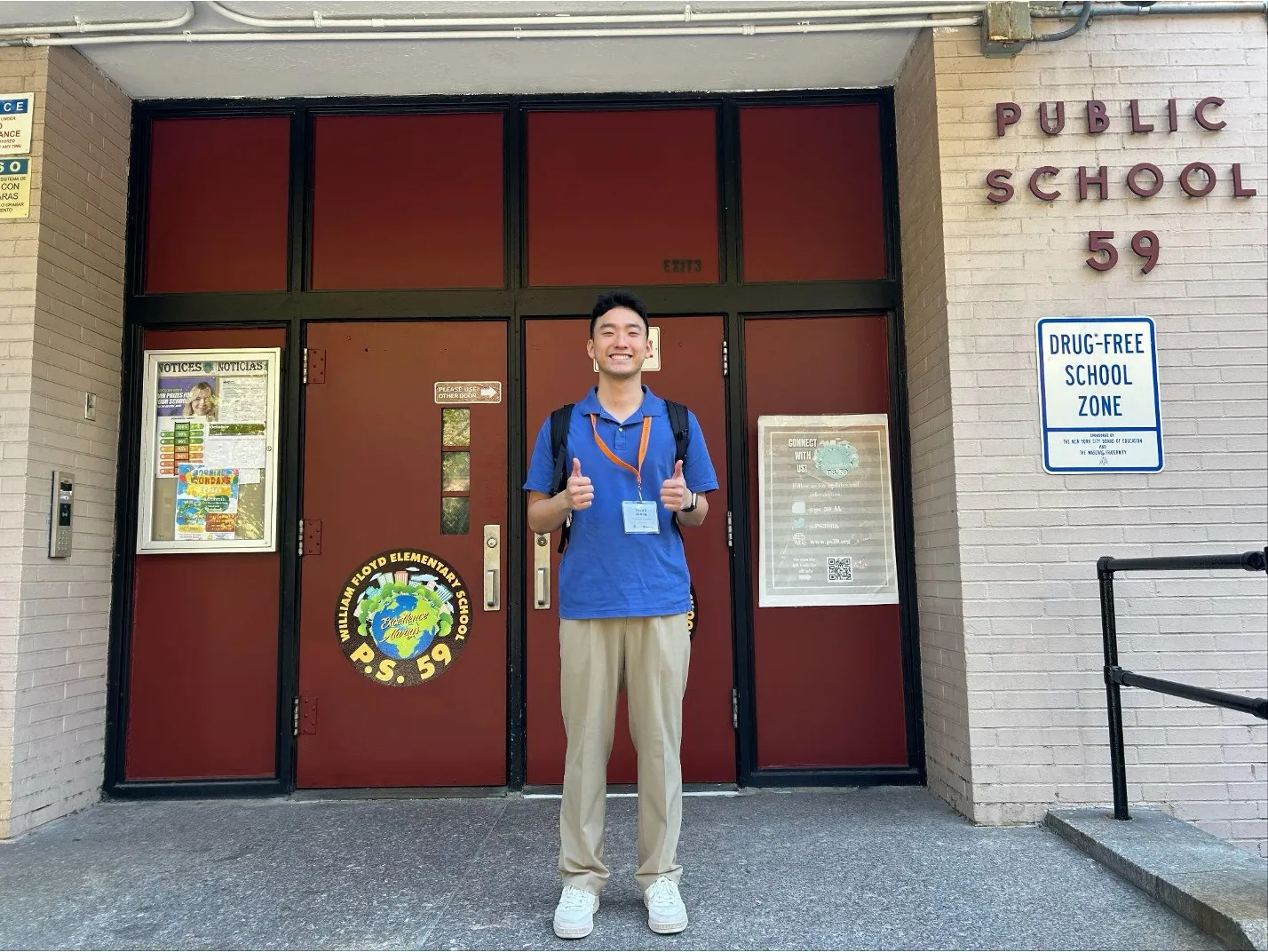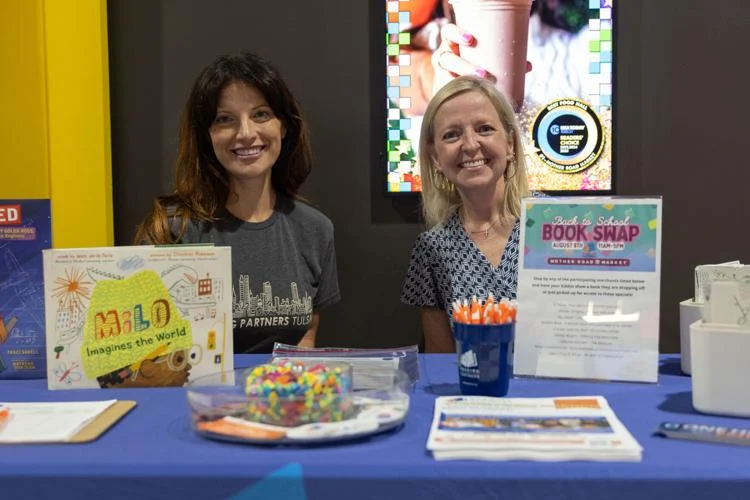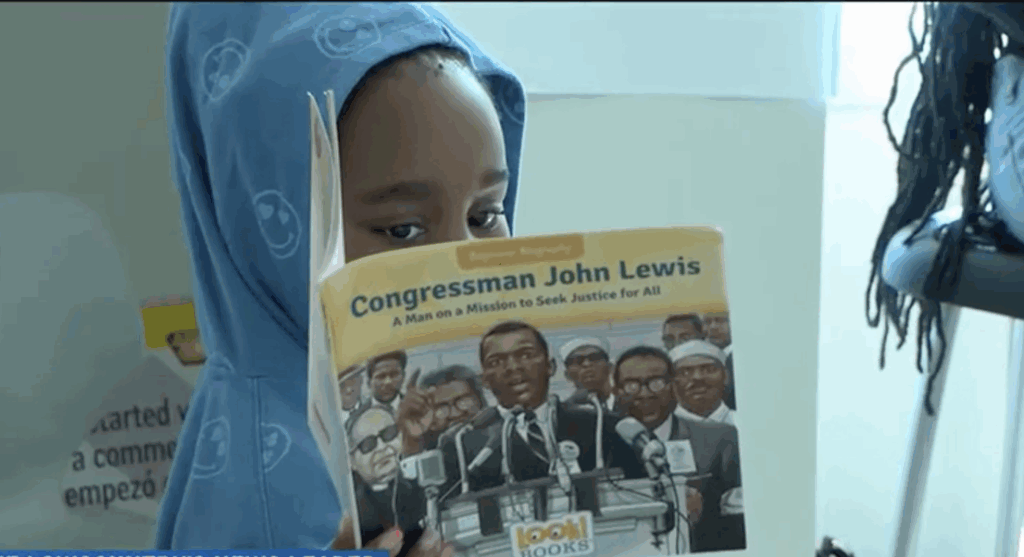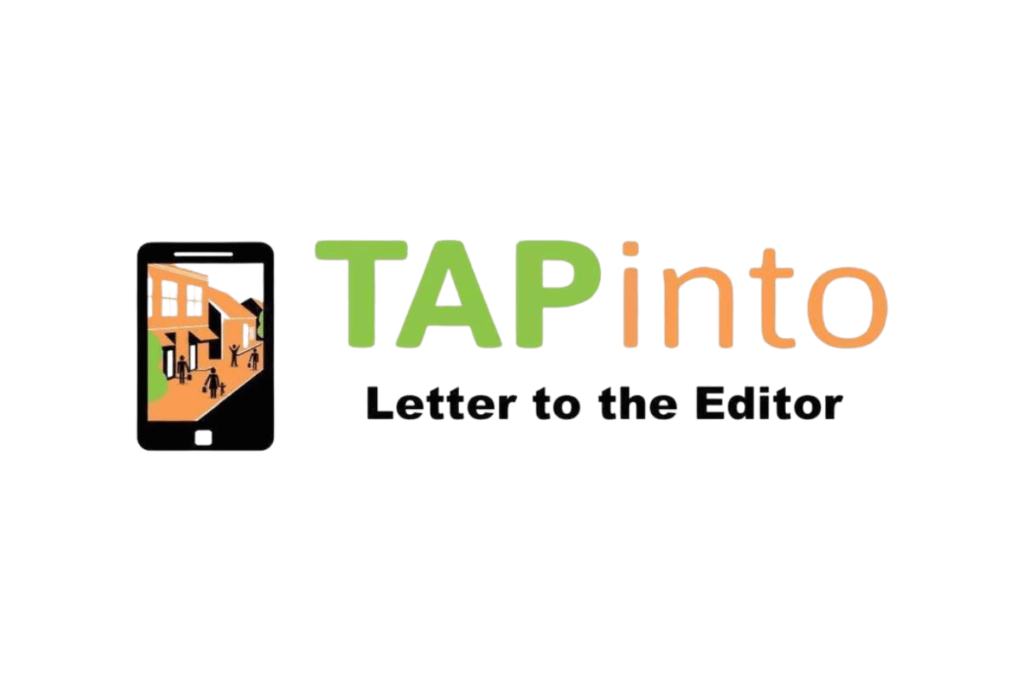Originally posted on The FAO Schwarz Fellowship
On Tuesdays, I’m Mr. Jacob. I drag myself out of bed after many snoozes of my alarm, grab a quick breakfast—typically a stubbornly thick cup of Greek yogurt and a PB&J sandwich—and head out the door for my 13-minute walk to P.S. 59: The Dawn Best Elementary School. For those of you who might not be familiar with the way New York City names its public schools, the P.S. stands for Public School. That might seem obvious, but I had to ask a colleague what it stood for my second week into the role, further cementing my identity as a New York City transplant. But, as I was reminded by my colleague—and as I love to tell my students—there are no bad questions.
Teaching anyone how to read is a challenge, but inspiring a child to enjoy reading—something many of us abandon as adults—is a whole other ambition.
My direct service work at Reading Partners involves leading one-on-one tutoring sessions focused on literacy with students throughout the day. I help them become better readers. To some students, I look like I am the freshly graduated age of 23, while to others, I look closer to 40. It all depends on how recently I’ve shaved. However, one thing remains consistent: my students love reminding me that I’m old. To them, I’m an adult figure in their lives, adjacent to a teacher, hence my emphasis on the title “Mr.” before my name. It’s important for them to know that they meet with me each week to learn, not to hurt my ego. I am an adult, and I come to this work with over 8 years of experience as a tutor and mentor for young students. However, time and time again, my students show me that there’s still much for me to learn.
Patience is one of those lessons. Every Tuesday morning, I start my day by meeting with Joseph, one of my 2nd-grade students who is reading below grade level. Joseph is the student who has challenged me most as a tutor. He’s naturally funny, brutally honest, and a quick learner. No matter how many times he announces that he hates reading, I’ve seen how capable he is in the rare moments when he finds the motivation to push through a lesson. Like most other students his age, he would much rather run around the room than sit down and read for 45 minutes. There are times when I want to fasten a seat belt to his chair to make him stay focused, but there are also moments when we’re dancing and high-fiving because he’s remembered a vocabulary word or successfully tackled an intimidatingly long sentence, pausing at each comma. Teaching anyone how to read is a challenge, but inspiring a child to enjoy reading—something many of us abandon as adults—is a whole other ambition. At a point when I was questioning what progress Joseph and I had made together, his mid-year assessment showed immense improvement. It served as a reminder that the work I’m doing is about laying the foundation for his future, both in school and beyond. That’s why it’s worth it.
As a first-generation college graduate, I’ve experienced the transformative power of education firsthand. I’m also a pandemic student. While my experience wasn’t unique, the shifts in education I experienced as a result of the pandemic have stayed with me, and they’re reflected in the challenges young students are facing today. New York City, like many other cities, is dealing with issues like chronic absenteeism, enrollment declines, and a major shift in how public schools approach reading instruction. Young students today are facing a multitude of barriers to learning to read, and yearly statistics from the National Association of Educational Progress, also known as the “Nation’s Report Card,” remain alarming. Students like Joseph deserve support, and schools and communities must work to ensure that students are equipped to succeed in school and beyond.
So, I continue to show up for my students. While I may not know where my own future lies, I appreciate knowing that my work as a Fellow leaves a small but meaningful impact on the students and families that I work with. I celebrate Joseph when he focuses and completes a lesson. I celebrate Kelly when she reads three more words than she did in our previous timed reading exercise. Even amid a period marked by deteriorating attention spans, political turmoil, and a changing educational landscape, I am evermore aware and reminded by my students that education is powerful and that we can shape the future.
Jacob (he/him) is the “Powered By” Program’s FAO Schwarz Fellow at Reading Partners in New York City.




